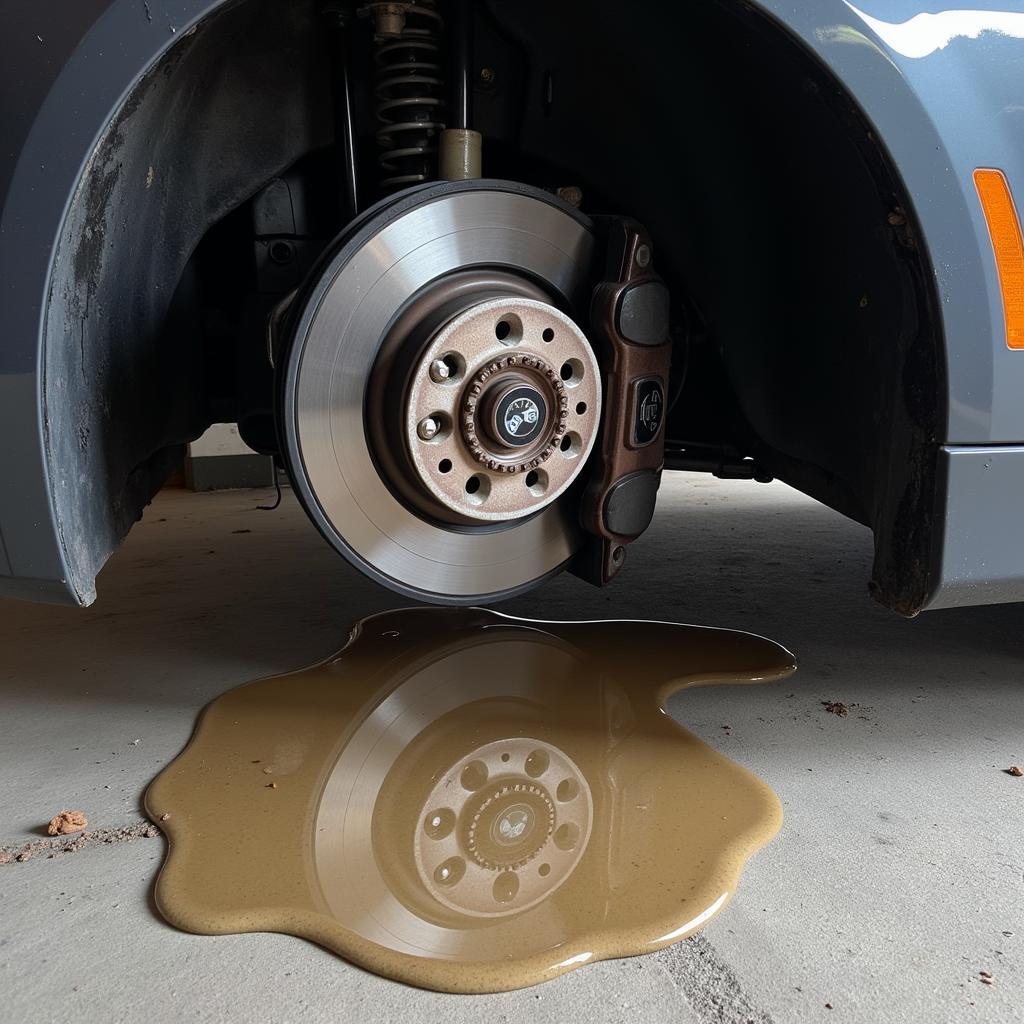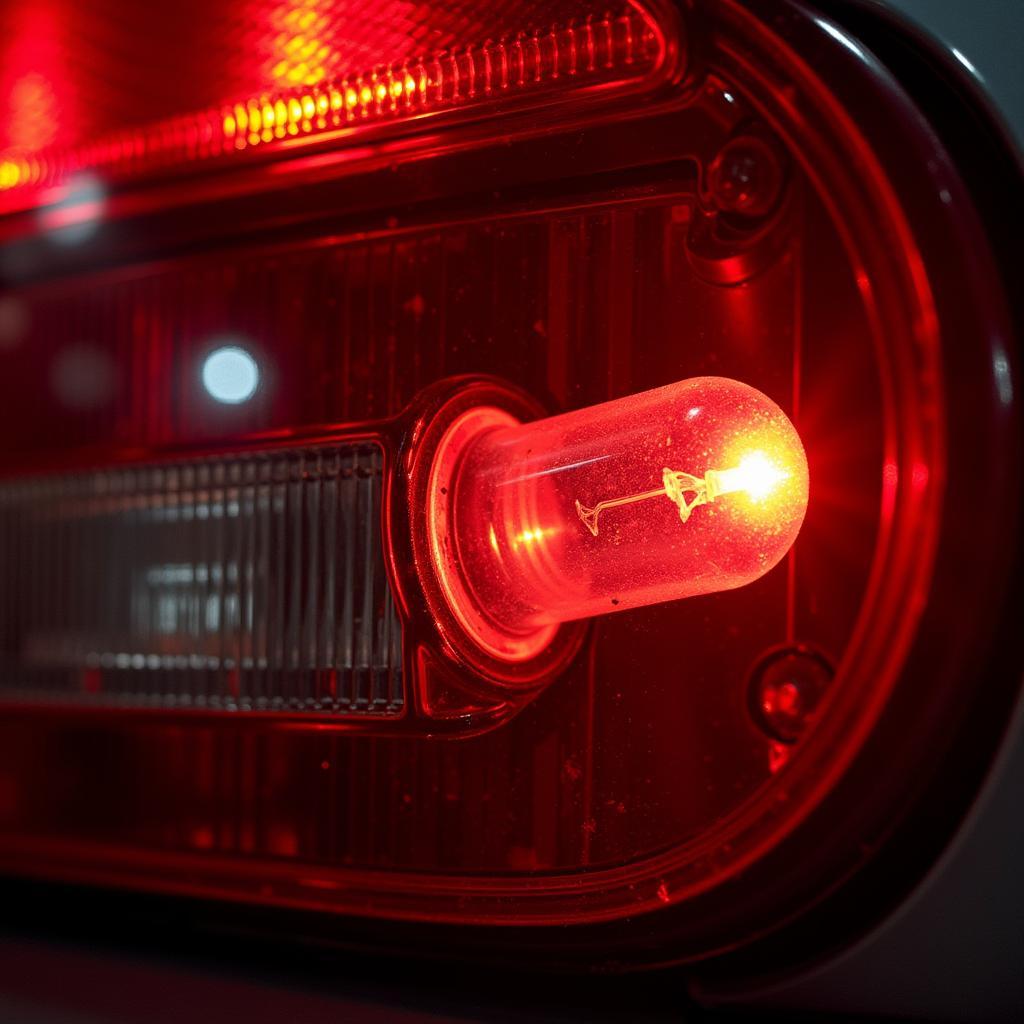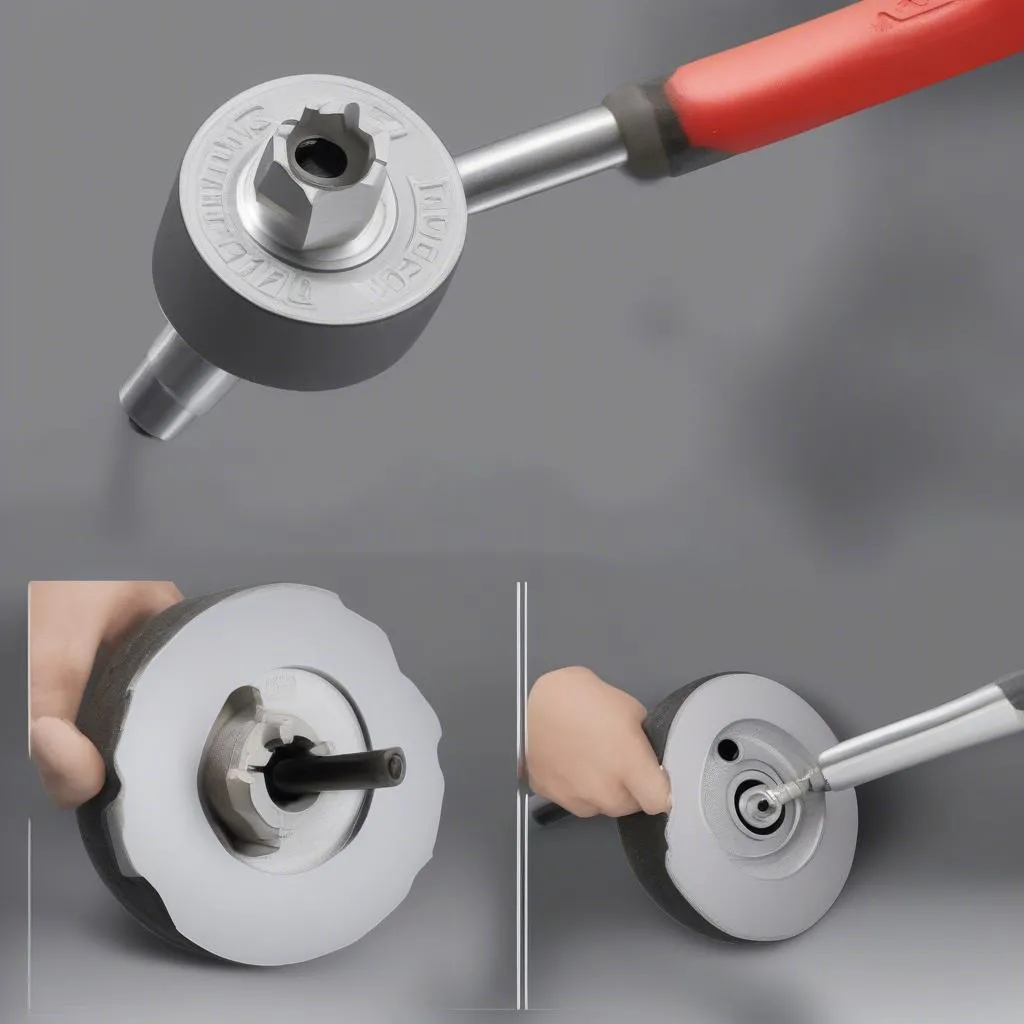The dreaded brake fluid warning light flashing on your BMW 3 Series dashboard can send chills down any driver’s spine. It’s a stark reminder that your car relies on a complex system of hydraulics and sensors to function correctly, and something isn’t quite right.
This article will delve into the common causes of the BMW 3 Series brake fluid warning light, discuss potential risks, provide troubleshooting tips, and guide you on the best course of action to get your BMW safely back on the road.
Understanding Your BMW’s Braking System
Before we jump into the causes and solutions, let’s understand the crucial role brake fluid plays in your BMW 3 Series. Your car uses a hydraulic braking system, meaning it relies on brake fluid to transmit force from the brake pedal to the wheels, ultimately slowing down or stopping the vehicle.
When you press the brake pedal, the force is amplified by the brake booster and then transferred to the master cylinder. The master cylinder compresses the brake fluid, creating pressure that travels through the brake lines to the calipers at each wheel. This pressure forces the brake pads to clamp down on the rotors, generating the friction needed to stop the car.
Common Causes of the Brake Fluid Warning Light
The brake fluid warning light on your BMW 3 Series dashboard typically illuminates for two primary reasons:
1. Low Brake Fluid Level: This is the most common cause. As brake pads wear down over time, the brake calipers need more fluid to compensate for the reduced pad thickness. If the brake fluid level drops below a certain point, the warning light will illuminate.
2. Brake Fluid Leak: A leak anywhere in the braking system, including the master cylinder, brake lines, hoses, or calipers, can cause a drop in brake fluid level and trigger the warning light.
 BMW 3 Series Brake Fluid Leak
BMW 3 Series Brake Fluid Leak
Dangers of Ignoring the Brake Fluid Warning Light
Ignoring a lit brake fluid warning light can have serious consequences, compromising your safety and potentially leading to costly repairs. Here’s why:
- Reduced Braking Performance: As brake fluid levels drop, air can enter the brake lines, reducing hydraulic pressure and making the brake pedal feel spongy or soft. This can significantly increase your stopping distance, posing a serious safety risk.
- Complete Brake Failure: In extreme cases, a severe brake fluid leak can lead to complete brake failure, leaving you with no way to slow down or stop your vehicle.
- Damage to Brake System Components: Driving with low brake fluid can damage sensitive braking system components like the master cylinder and calipers due to increased friction and heat.
Troubleshooting the Brake Fluid Warning Light
If your BMW 3 Series brake fluid warning light comes on, it’s crucial to address the issue immediately. Here’s a step-by-step guide to help you troubleshoot the problem:
-
Check the Brake Fluid Level: Park your car on a level surface and turn off the engine. Locate the brake fluid reservoir, usually a translucent plastic container with a black cap, labeled “Brake Fluid.” Check the fluid level against the minimum and maximum markings on the reservoir.
-
Add Brake Fluid (If Necessary): If the fluid level is low, carefully remove the reservoir cap and add the recommended brake fluid for your BMW 3 Series until it reaches the maximum line. Always refer to your owner’s manual for the correct type of brake fluid.
-
Inspect for Leaks: Carefully examine the area around the brake fluid reservoir, brake lines, hoses, and calipers for any signs of leaks. Look for wet spots, drips, or puddles of brake fluid. Brake fluid is typically clear or amber-colored but can appear darker if contaminated.
When to Seek Professional Help
If you’re uncomfortable performing these checks, suspect a brake fluid leak, or the warning light remains illuminated despite adding fluid, it’s crucial to seek immediate professional assistance.
“Driving with a brake fluid leak is incredibly dangerous,” says Jake Carter, a senior mechanic at Munich Motors specializing in BMW repairs. “It’s not a DIY job. You need a qualified technician to diagnose the source of the leak, repair it properly, and ensure your braking system is functioning at its optimal level.”
 BMW 3 Series Brake Inspection
BMW 3 Series Brake Inspection
You can use a remote diagnostic service to get an initial assessment of the issue. This service can connect to your car’s computer system wirelessly to read fault codes and provide insights into the problem. However, a physical inspection by a qualified technician is always recommended for a definitive diagnosis and repair.
Preventing Future Brake Fluid Issues
Here are some proactive measures you can take to prevent brake fluid issues and keep your BMW 3 Series stopping safely:
- Regular Brake Fluid Flushes: Brake fluid is hygroscopic, meaning it absorbs moisture over time. This can reduce its effectiveness and potentially damage braking system components. BMW recommends flushing your brake fluid every 2 years or as specified in your owner’s manual.
- Timely Brake Pad Replacements: Replacing your brake pads before they wear down completely ensures optimal brake fluid levels and prevents air from entering the braking system.
- Routine Brake Inspections: Regularly inspecting your brakes during oil changes or annual maintenance checks can help identify potential issues like leaks or worn components before they escalate into major problems.
Conclusion
The brake fluid warning light in your BMW 3 Series should never be ignored. By understanding the common causes, recognizing the risks, and taking prompt action, you can ensure your safety and prevent potentially costly repairs. Remember, when it comes to your brakes, always err on the side of caution and seek professional help when needed.


